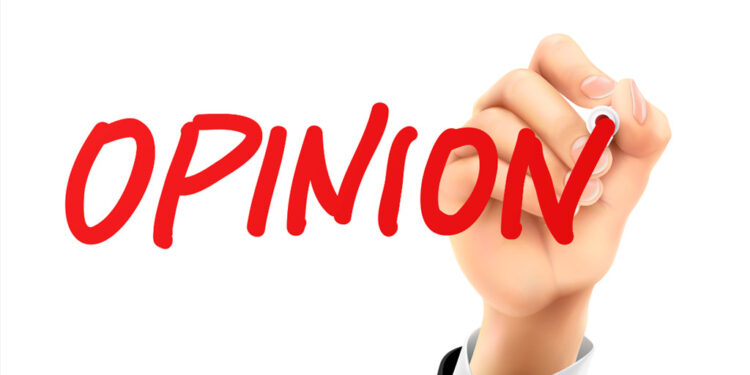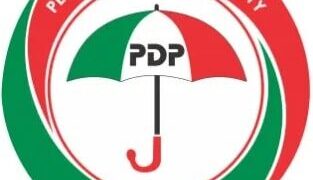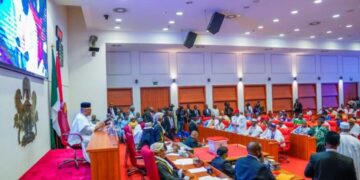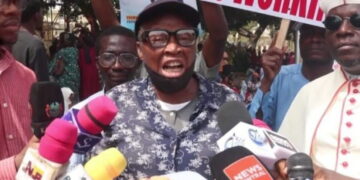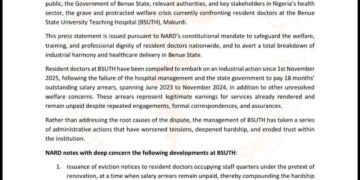“Overcoming poverty is not a task of charity, it is an act of justice. Like Slavery and Apartheid, poverty is not natural. It is man-made and it can be overcome and eradicated by the actions of human beings.”
– Nelson Mandela
I uttered my first cry atop well cured banana leaves at the back of my mother’s thatch hut in Orokam. My mother was delivered of her first fruit by an experienced traditional birth matron. That the piercing cry announcing my arrival emanated from a decrepit floor, which signposted poverty, did not shock anyone. It was a generational normal for the community.
In the year of my birth, hospitals were luxuries found only in distant lands. They were heard of only in stories told by sojourners. To be able to reach them and pay the bills would amount to emptying the resource vault of the entire community. It was not an option. It was a luxury in the sky.
Now that I am old, there is not much dent to the story of my mother’s experience decades ago! The circle of poverty persists in my backyard. But I have long realised that this poverty is contrived. You see, wealth is defined or measured by the level of poverty. The rich can only be rich if the poor exists. The poorer the poor gets, the more popular and celebrated the rich becomes. In other words, for the rich status to have relevance, the poor status must of necessity exist, and prominently.
Therefore, the wealthy must continuously contrive the fertile environment for poverty to thrive, so that they can bloom in their wealth. The flaunting of their flamboyant, ostentatious lifestyle can only attract attention in the face of abject poverty and excruciating hunger.
Read Also
Gov Alia Bans Wake, Social Events, others Beyond 10PM
Group Raises Alarm Over Plans to Repeal Anti- Open Grazing Law
Arguably, there is no part of the world where the circle of poverty is more vicious than our country. Described as the ‘Giant of Africa’ due to its large land mass, huge population and otherwise expansive economic potential, Nigeria, for decades, continues to grapple with deep-rooted poverty. Though this poverty crisis is multifaceted, stemming from a complex web of historical, political, economic and social factors, it has been oiled largely by successive leaderships and a select few among the elite.
They are united in protecting their interests at the expense of the poor. They and their families win the elections, get the juicy political appointments, employment opportunities and contracts. Daily, we hear of the mouth-watering, mind-boggling salaries, allowances and perquisites of office that go into the pockets of elected and appointed political leaders as well as some top ranking civil servants.
Also, we are regularly served news of the scandalously stupendous amounts often stolen from the public till by sharp-fingered kleptomaniacs whose eternal greed wickedly impoverishes the population. Via corruption, they siphon critical resources that could have been invested in public services, infrastructure, and economic development.
The perpetrators of the vicious circle of poverty also love crises, violence. In fact, they appear to fuel it because they thrive more in it. That’s why violent confrontations and attacks on communities by the ubiquitous unknown gunmen, bandits, herdsmen, terrorists or whatever they are called, persist, throwing the hapless poor into early graves or IDP camps.
Rural communities are the most hit by this contrived vicious circle of poverty. Most of them lack access to essential services such as clean water, electricity, healthcare services and roads. This lack of infrastructure and public services hinders economic development and traps residents in this cycle of poverty and limited opportunities.
To break this contrived vicious circle of poverty in my backyard will not be easy. In fact, it will be a complex and challenging undertaking. But it is not impossible because it is a necessary step for the country to realise its full potential and ensure a better future for all citizens.
For a start, citizens must muster the courage to ask questions about the application of the common resources. Instead of engaging in rhythm-less dances or mirthless smiles during the far-between visits by their leaders to demean them by throwing the least denominations of naira notes on them, they should seek to know the sources of such money. Maybe they would discover that it was, ab initio, meant for the execution of worthwhile projects for them. And that denying them such projects is part of the conspiracy to keep the wheel of poverty running. That’s why, instead of putting in place the right infrastructure and institutions that can help the poor become financially independent, the rich pin the poor to a tiny space where they remain dependent forever.
The poor in the land must break through the barriers imposed by the conspiracy of a select elite in the political, bureaucratic, religious and business sectors, and participate more consciously in local politics so as to advocate for policies and programmes that can address inequality and poverty. They should harness their numerical strength, and push for systemic changes in policies.
Since corruption is the fulcrum on which the vicious circle of poverty revolves, the poor must also consciously support anti-corruption efforts, advocate for transparency in both the public and private sectors, to ensure equitable distribution of resources.
Above all, they must refuse to be caged in the poverty circle. They must do something to earn something, no matter how little. That’s the route to their financial independence.
For leaders and others who have been empowered enough to break the vicious circle of poverty but refuse to do so, I pray that the following rhetorical question by Pope Francis would ignite the seemingly dead humanity in them to act right.
“Isn’t it fickle, mediocre vanity that makes us build walls, whether they are walls of riches or power, or violence and impunity?”

